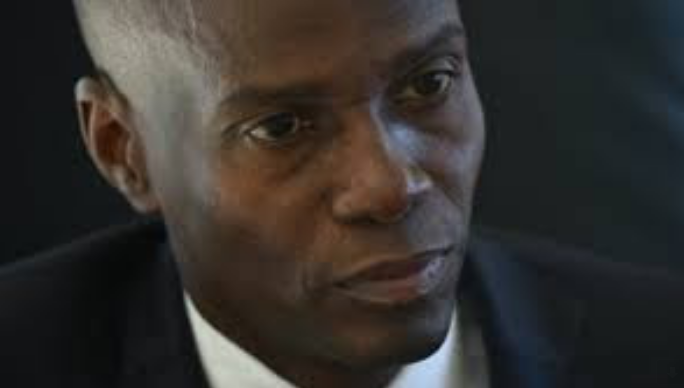Haitian president calls for innovation, investment in energy sector
From CARICOM
 Greater Georgetown, Guyana – The 2017 edition of the CARICOM Energy Month (CEM) got off to an impressive start Oct. 30 in Port au Prince, with His Excellency Jovenel Moïse, the president of Haiti, participating in the opening session of a symposium. The event launched the CEM and brought together many of the actors in Haiti’s energy sector.
Greater Georgetown, Guyana – The 2017 edition of the CARICOM Energy Month (CEM) got off to an impressive start Oct. 30 in Port au Prince, with His Excellency Jovenel Moïse, the president of Haiti, participating in the opening session of a symposium. The event launched the CEM and brought together many of the actors in Haiti’s energy sector.
In his assessment of the Haitian sector, the president declared that he intended to “make universal and reliable access to energy a key factor of economic development.” He highlighted the country’s potential to utilise and develop clean, renewable sources of energy.
“But it’s not only a question of producing energy and making it accessible to people” said the president. “We also have to collect revenue. Energy cannot be free; everywhere in the world one has to pay for energy. This has to be properly reflected in our energy policy.”
President Moïse noted that the public and private sectors both had a role to play in the development of the sector, and he took the opportunity of this address to illustrate some of the measures and actions taken by his administration to boost clean, renewable energy (solar, hydro, hydraulic, wind, and biomass) in the overall energy mix.
In order to meet this challenge, the Haitian President called for innovation and investment in energy production and distribution, and he had special words for the university students who were in the audience.
“Do not wait for your final dissertation”, said President Moïse, “to contribute to the transformation the energy sector. You can act now.”
Indeed, the role of universities and research institutions was highlighted by many of the speakers in this event, notably by Professor Fritz Desormes, the chancellor of the Université d’Etat d’Haïti. He stressed “the availability and readiness of the Haitian institutions of higher learning to contribute to the development of alternative technologies.”
Regional cooperation was another recurrent theme in the deliberations of this symposium, with Dr. René Jean-Jumeau, the director of the Haitian Energy Institute and overall facilitator of the symposium, noting that there had been major advances in the energy sector in the Caribbean in recent years. He added that there was much that Haiti can benefit from increased cooperation with the rest of CARICOM.
This theme was echoed by Dr. Devon Gardner, head of the Energy Unit at the CARICOM Secretariat, who concluded his presentation to the symposium by indicating that:
“Together, we can make significant advances in providing secure, efficient and cost efficient supplies of energy that can sustainably power the future of this region, this nation and its people.”
In its technical sessions, the symposium, which was hosted jointly by the Haitian Ministry of Public Works, Transport and Communication and the CARICOM Secretariat, gave participants the opportunity to examine and discuss in some details the opportunities offered by the regional energy policy as well as the options for the development of renewable energies in Haiti.
Throughout the month of November, the CARICOM Secretariat, under the theme “RE-thinking energy: shaping a resilient community,” will spearhead activities aimed at raising awareness of energy issues and options in the region, at generating support for innovation and solutions, and at encouraging behavioural change.
